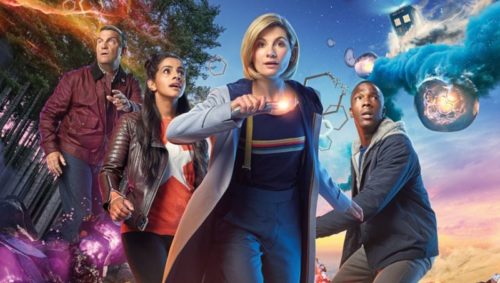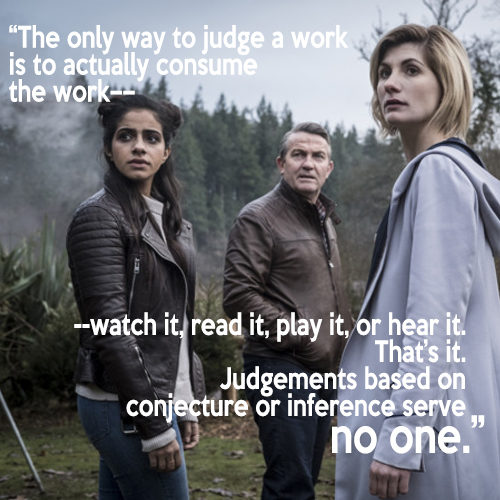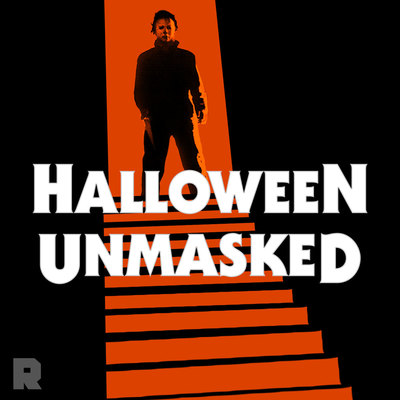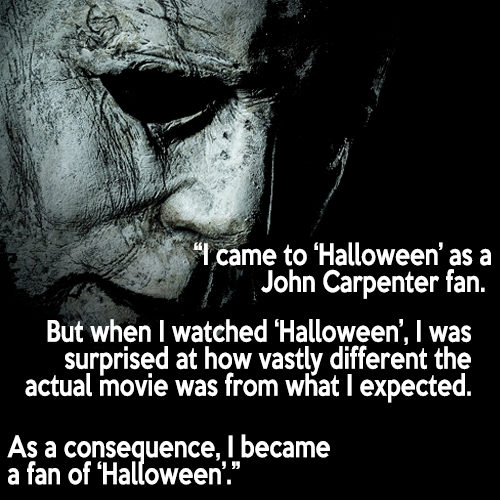The Week – 26 October 2018

WATCHING:

source: BBC
- Doctor Who – Series 11
I’ve been an ardent fan of Doctor Who for awhile, and what I love about the show is how much it changes. In fact, change is built into the premise of the show. So, as much as I love a lead actor or head writer or general cast of characters, I tend to always hit a point where I start getting antsy for things to change.
The nice thing about Doctor Who is that regular change is built directly into the show. The main character, the titular Doctor, is an alien who doesn’t die but “regenerates”––their body ostensibly evaporates and reconstitutes into a new and different form (i.e., a new actor). And even though there are slight personality shifts and new ticks and mannerisms, the character of “the Doctor” is indelible throughout any casting changes. With that change comes a sense of renewal, of opportunity, of continuity. Partly because of this conceit of rejuvenation, it’s a show built around optimism and as dark as it can get (and it can get very dark, re: “Midnight”) it is always fun to watch because the Doctor not only always finds a way out of the problem, but does so with an eagerness and faith in the ability to make things better.
Doctor Who started in 1963 in England for the BBC and ran continuously until 1989 at which point it was cancelled. It remained so (with an attempted return in 1996) until 2005, and has been running steadily since. Up until last Christmas, thirteen actors have officially played the lead role of the Doctor for the show. However, with last year’s Christmas Special, current Doctor, Peter Capaldi, regenerated after three years in the role (which tends to be the average length of a Doctor’s tenure).
In his place steps Jodie Whittaker whose full premier as the Doctor started a few weeks ago. Some people had been voicing worry or outright hostility to the upcoming season because they haven’t enjoyed the previous work of the incoming showrunner, Chris Chibnall, or that the new Doctor is a woman when only men have played the role throughout its history. Luckily, anyone that actually loves the show––its tone, its writing, its silliness, its melodrama––will be calmed within five minutes of the first episode. So far, the season has been a delight, doing some cool new stuff including subtle nods to the show’s long history as well as pushing the show into challenging new realms of narrative. It’s invigorating to watch and I can’t wait to see where it goes.

Image source: BBC
While this conversation could go off on a variety of tangents, the one I’ll address is fairly universal without falling into any political traps. I despise people that judge things––books, comics, movies, tv shows, video games––based on casting news or staffing news or trailers. DESPISE. I don’t like it because those judgements literally mean nothing. They mean nothing because the judge has not actually encountered the final text, and if you haven’t done that then you have no opinion worth a whit.
Even on my own nerd culture podcast, we try to not spend too much time talking about trailers because it’s just a trailer or it’s just a press release. The only way to judge a work is to actually consume the work––watch it, read it, play it, or hear it. That’s it. Judgements based on conjecture or inference serve no one. Remember when Heath Ledger was cast as the Joker in The Dark Knight? “Fans” on the internet lost their mind with despondency when, in actuality, they should approach such announcements with a slight nod and a “Hmm… That’s interesting.” Because that’s the only logical response to news of an actor getting a job. Remember when everyone saw the first image of Heath Ledger as the Joker? All the naysayers shut up. Fast.
While I get that the internet thrives on hot takes, so much of it is actually just hot air because it doesn’t mean anything. A bad trailer means nothing for a movie because, by definition, a trailer is not a movie. Just judge the trailer (if you must) or the casting news (if you must) but only for what they are, because those are the only things upon which you can confidently comment.
If you don’t want to watch the new season of Doctor Who because you don’t like who is cast in the role, then don’t watch it. But if you say it’s going to be (or already is) terrible because of who was cast in it, you literally don’t know what you’re talking about. However, if that’s the reason why you’re not watching the new season, the loss is wholly and completely on you, because it is fantastic so far.
LISTENING:

source: The Ringer
- Halloween Unmasked – a limited series docu-podcast hosted by Amy Nicholson for The Ringer.
The movie that defined slasher movies, John Carpenter’s 1978 classic Halloween, turns forty this year. If you haven’t seen the film in a while (or at all), go back and take a look for the sake of the season! It’s a taut movie with no fluff (partly due to also having no budget) and it’s relatively bloodless. Pack on a few novel, nuanced, and thoughtful ideas that its progeny (both in-series and copycats) have completely missed or forsaken and you’ll find yourself reasonably impressed after its 90-minute run time.
I came to Halloween as a John Carpenter fan––specifically of The Thing and Escape from New York––but when I watched Halloween I was surprised at how vastly different the actual movie was from what I expected. As a consequence, I became a fan of Halloween. Admittedly, I haven’t seen its sequels aside from Halloween III: Season of the Witch (but it was rented under pretense––we heard it was bad so we rented it to laugh at it) and part of me doesn’t want to because the first movie is so solid an experience.
However, a new movie has hit theaters with a John Carpenter score and Jamie Lee Curtis returning as the hunter rather than the prey, so it’s safe to say that my excitement is a bit stoked.

Image source: Universal Pictures
Further stoking occurred when I found Halloween Unmasked, an eight-part documentary podcast that’s mostly about Halloween and its cultural impact, though it does address the sequels and new movie, too.
What I like about it is how well it’s structured. It’s not a review podcast talking about what’s good and bad with each movie. Instead, it’s thematically constructed. The first few episodes are about the history of John Carpenter and how the first film got made, but after that it looks at the series holistically based around specific ideas. There’s an episode about psychology as it relates to the behavior of the monster of the series––Michael Myers (referred to as “the Shape” in the script)––as well as the behavior of the prominently featured psychologist character as well as our psychological response to Halloween and movies that do what it does. There’s an episode focusing on Jamie Lee Curtis, discussing her experience growing up a celebrity child, getting cast in Halloween, and her career since then. There’s also an episode about the film’s sequels and other slasher films it inspired (and what they got wrong). There’s even one about the fandom that has erupted from the smashing success of the first movie and how it has evolved over time.
Ultimately, the podcast is iterating on what has been happening a lot more in the last ten years or so: re-examining John Carpenter’s mark on cinema. While he started with strong box office receipts, he was met with a prolific string of “duds” in terms of returns on budget. To a point, he was regarded largely as a Hollywood failure despite having mounds of talent. He has always been regarded as a very thoughtful filmmaker, but many of his films seemed to miss the mark to connect with moviegoers upon release. However, critical retrospectives reveal what superfans already know––Carpenter’s works are more than superficial exercises, unlike a lot of other genre work. His films have a superficial value with regard to whatever genre they are playing within, but his movies are ultimately always trying to say something, usually about the human condition, and it is present––as Halloween Unmasked proves––in his work as early as Halloween.
Halloween Unmasked is exactly what I’m looking for in a non-fiction podcast about a specific subject––a thoughtful, well-written and researched look at a property, a show with something to say, just like Carpenter himself.

Discussion ¬